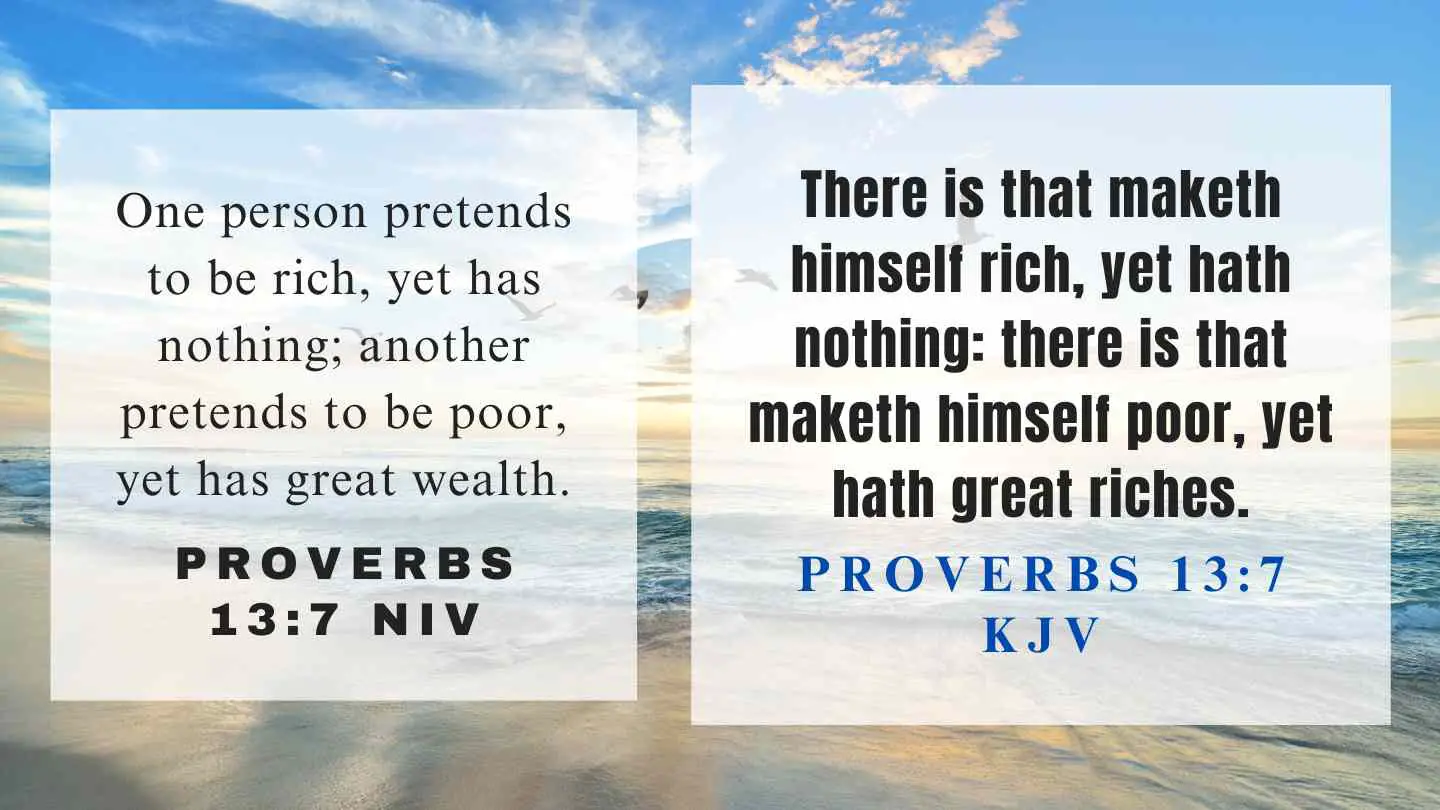There is that maketh himself rich, yet hath nothing: there is that maketh himself poor, yet hath great riches. — Proverbs 13:7 KJV
One person pretends to be rich, yet has nothing; another pretends to be poor, yet has great wealth. — Proverbs 13:7 NIV
Verse for Today Reflection
This verse offers profound insight into the Christian perspective on material wealth and spiritual richness.
At its core, this proverb speaks to the concept of appearances versus reality, particularly in the context of wealth and poverty. It cautions against the dangers of ostentation and the pursuit of wealth as an end in itself. In the Christian worldview, this can be understood as a reminder that earthly riches are fleeting and can be deceptive. It emphasizes that true wealth is not measured by material possessions but by spiritual richness and the treasures stored in heaven.
Jesus Himself taught about the perils of prioritizing material wealth over spiritual health. He said, “Do not store up for yourselves treasures on earth, where moths and vermin destroy, and where thieves break in and steal. But store up for yourselves treasures in heaven, where moths and vermin do not destroy, and where thieves do not break in and steal. For where your treasure is, there your heart will be also” (Matthew 6:19-21).
Proverbs 13:7 also touches on the theme of humility and the virtue of living a life not dictated by the pursuit of wealth. It’s a call to Christians to seek a humble and contented life, focusing on spiritual growth and service to others rather than accumulating wealth for its own sake.
This verse also serves as a reminder that God’s perspective on wealth and success is often different from the world’s view. What is valued in society – wealth, status, and material possessions – may be insignificant in the eyes of God. Conversely, what is often overlooked or undervalued by the world, such as kindness, generosity, and faith, are treasures in the Kingdom of Heaven.
In summary, Proverbs 13:7 encourages Christians to focus on spiritual richness over material wealth, to live humbly and contentedly, and to remember that in God’s kingdom, the true value of a person is not measured by their material possessions but by the state of their heart and their relationship with God.

